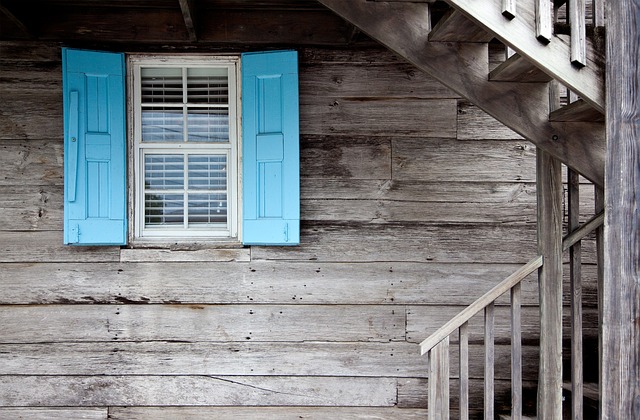Metal cladding for building facades offers a high-performance, durable solution that protects against environmental elements while enhancing aesthetics. Aluminum and steel cladding options are coated with resistant finishes to prevent corrosion, ensuring longevity and minimizing maintenance. These claddings incorporate advanced features like thermal breaks and insulation layers for improved energy efficiency and align with sustainable building practices. The choice between aluminum and steel depends on factors such as local climate, budgetary constraints, and architectural preferences, with both materials offering robust protection against weather extremes and diverse customization options. For residential applications, metal cladding provides a low-maintenance alternative that can mimic traditional finishes while improving energy efficiency. In commercial settings, it's essential for maintaining structural integrity, curb appeal, and optimal interior conditions over time. A reputable supplier specializing in weather-resistant metal cladding systems can deliver customizable solutions that meet high performance standards and are backed by comprehensive warranties, ensuring a durable and visually appealing facade for any building.
Metal cladding emerges as a pivotal solution in shielding buildings from environmental assaults. This article delves into the robust and resilient world of metal cladding services for facades, emphasizing their durability against various weather conditions. We explore the resilience of these systems, suitable for both residential and commercial structures, and highlight the advantages they offer in extreme climates. Discover key factors to consider when choosing a reliable provider for top-tier, enduring metal cladding solutions that promise to enhance your property’s longevity and aesthetic appeal.
- Understanding Metal Cladding for Facades: The Shield Against Elements
- Assessing the Durability of Metal Cladding Options for Residential and Commercial Buildings
- The Advantages of Weather-Resistant Metal Cladding in Extreme Climates
- Selecting a Trusted Provider for High-Quality, Long-Lasting Metal Cladding Solutions
Understanding Metal Cladding for Facades: The Shield Against Elements
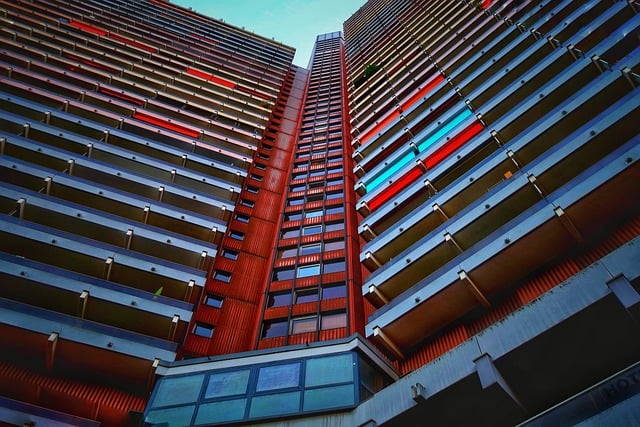
Metal cladding for facades represents a robust solution in the architectural realm, offering unparalleled protection against environmental adversities. This innovative approach to facade design combines aesthetic appeal with functional integrity, ensuring that structures are well-guarded against the capricious whims of nature. Cladding systems are engineered to be weather-resistant, with materials such as aluminum and steel standing out for their resilience. These metals can be finished with durable coatings that resist corrosion, making them ideal for both contemporary and traditional architectural styles. The choice of cladding not only enhances the longevity and maintenance efficiency of a building but also contributes to its overall performance by mitigating the impact of weather-related stressors like wind, rain, snow, and sunlight.
Incorporating durable metal cladding into facade design is a strategic investment in the longevity of a building’s exterior. The high-performance nature of these materials ensures that they can withstand the test of time, maintaining their integrity even under sustained exposure to harsh climatic conditions. Furthermore, the versatility of metal cladding allows for customization to fit various architectural designs, from sleek, modern aesthetics to more traditional, rustic looks. The facade’s resilience against weather elements is bolstered by advancements in cladding technology, which include thermal breaks and insulation layers that enhance energy efficiency and contribute to the overall sustainability of the building.
Assessing the Durability of Metal Cladding Options for Residential and Commercial Buildings
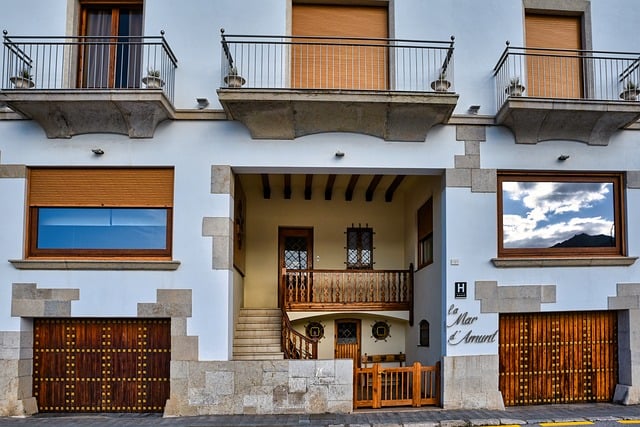
When evaluating durable and weather-resistant metal cladding options for residential and commercial buildings, the facade’s material composition plays a pivotal role in its longevity and performance. Aluminum and steel cladding are prevalent choices, each offering unique advantages. Aluminum, with its lightweight yet robust structure, stands as a formidable opponent to the elements, providing a finish that resists corrosion and offers a wide array of aesthetic customization options. Steel cladding, on the other hand, boasts exceptional strength and durability, often coated with alloy or PVC coatings to enhance its resistance to rust and weathering, ensuring a long-lasting facade solution for both modern and traditional architectural styles. The choice between these materials should consider factors such as local climate conditions, building design, maintenance preferences, and budgetary constraints.
For residences, the facade’s durability is not only about protection but also about aesthetics and comfort. Metal cladding can be designed to mimic natural materials like wood or stone, offering the warmth and charm of these traditional finishes while providing the benefits of metal, such as low maintenance and increased energy efficiency. In commercial settings, the demands on the facade can be more stringent, with larger structures necessitating a material that not only endures but also performs under varied environmental stressors. Here, the selection of an appropriate metal cladding system is crucial for maintaining the building’s integrity and curb appeal over time, ensuring safety, comfort, and efficiency for occupants.
The Advantages of Weather-Resistant Metal Cladding in Extreme Climates
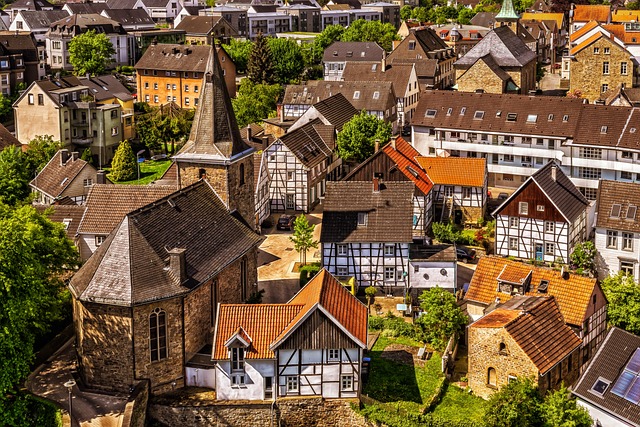
Metal cladding with weather-resistant properties plays a pivotal role in safeguarding structures from the harsh effects of extreme climates. These resilient facades, often composed of durable alloys like aluminum or stainless steel, are engineered to endure the relentless onslaught of elements such as high winds, torrential rains, and intense solar radiation without compromising the integrity of the building’s exterior. The protective layer not only shields the underlying structure but also contributes to its longevity by preventing corrosion and wear that can be accelerated in adverse weather conditions. This robust cladding is designed with a focus on thermal performance, ensuring optimal insulation and energy efficiency, which translates to lower heating and cooling costs for building occupants.
In regions where climatic extremes are the norm rather than the exception, the advantages of weather-resistant metal cladding are manifold. Its lightweight yet strong composition allows for easy installation and adaptability to various architectural designs without sacrificing structural support or aesthetic appeal. The cladding’s resilience against environmental stressors like salty sea air, sandstorms, or snow and ice buildup, is crucial in preserving the appearance and functionality of buildings over time. Furthermore, these materials often come with a low maintenance requirement, ensuring that the facade remains a cost-effective solution for maintaining the building’s performance and visual appeal under extreme conditions.
Selecting a Trusted Provider for High-Quality, Long-Lasting Metal Cladding Solutions
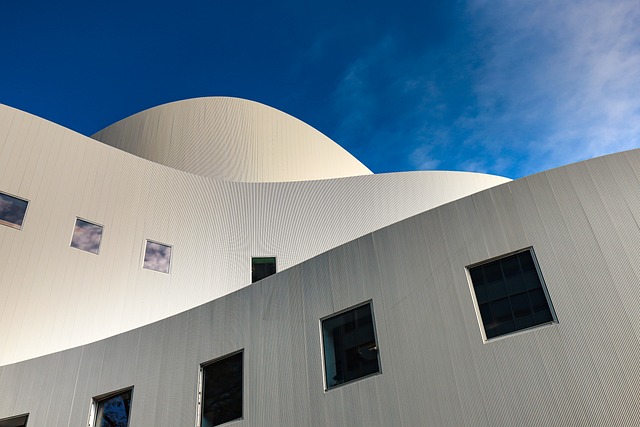
When seeking durable and weather-resistant metal cladding solutions, the selection of a trusted provider is paramount to ensuring the longevity and integrity of your building’s facade. A provider with a proven track record in the industry can offer high-quality materials that stand up to environmental stressors. Look for companies specializing in customized metal cladding systems that meet stringent performance standards, reflecting their commitment to excellence and sustainability. Their expertise in installation techniques, combined with advanced manufacturing processes, guarantees a seamless fit and a protective barrier against the elements.
In the quest for longevity, consider providers who offer comprehensive warranties, underscoring their confidence in the resilience of their cladding solutions. A thorough evaluation of potential suppliers’ portfolios and client testimonials can provide insight into the durability and aesthetic appeal of their metal facade products. Furthermore, a trusted provider should possess certifications from recognized bodies, assuring adherence to industry best practices and regulations, thereby safeguarding your investment for years to come.
In conclusion, durability and weather resistance are paramount considerations for safeguarding building facades from the ravages of the environment. Metal cladding emerges as a robust solution for both residential and commercial structures, offering unparalleled protection against a spectrum of climatic conditions. The choice of metal cladding not only enhances a building’s aesthetic appeal but also ensures its longevity and performance. Selecting a provider with a proven track record in delivering high-quality, long-lasting solutions is critical to maintaining the integrity and appeal of any facade. With careful selection and professional installation, metal cladding provides a protective, low-maintenance barrier that stands up to the test of time and weather, ensuring buildings remain resilient and secure.
